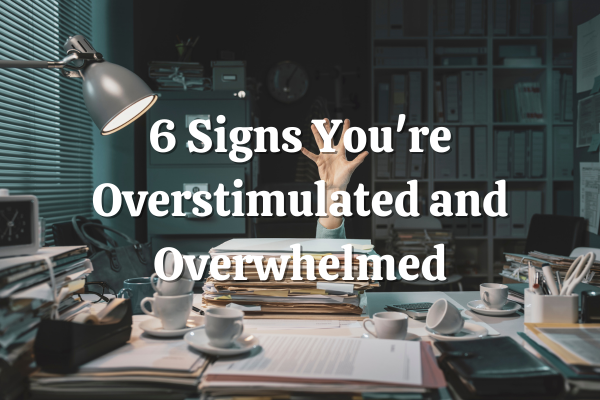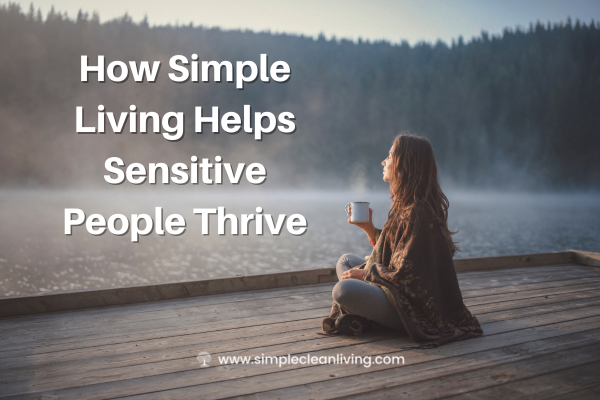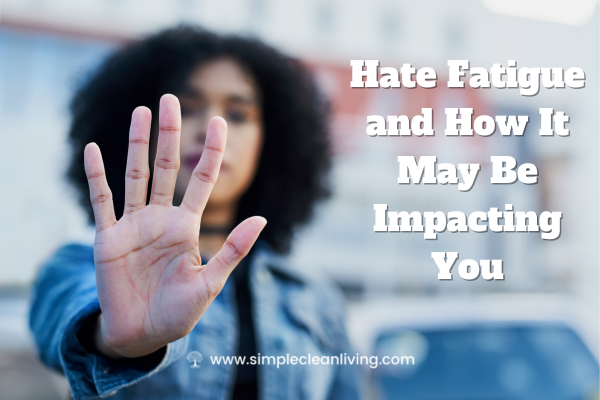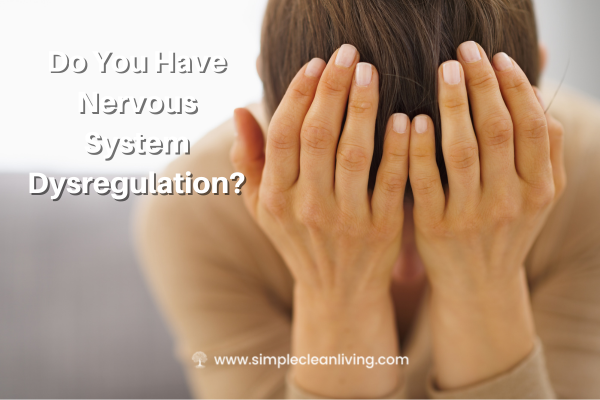Notice: I’m an affiliate for Amazon as well as other companies. Any links in this article may be affiliate links. I always appreciate it if you purchase something using my affiliate links. Doing so helps me to raise a little extra money that pays for the costs of running this site. And it allows me to continue bringing you quality content, all without costing you a thing! Thanks!
Let’s face it, today’s world is all about being busy. It’s chaotic and, we are bombarded with an overwhelming amount of information, stimuli, and responsibilities every day. Constant exposure to technology, social media, work pressure, and personal commitments can leave us feeling overstimulated and overwhelmed. If you are a sensitive person, these stimuli can have an even greater negative impact. As our mental and emotional capacities are stretched thin, it becomes essential to recognize the signs of overstimulation and take steps to regain balance and well-being. In this blog post, we’ll explore six telltale signs that indicate you may be overstimulated and provide practical strategies to help you reclaim your inner calm and mental clarity.
Physical Exhaustion and Fatigue
One of the first signs of overstimulation is physical exhaustion and fatigue. When our minds are constantly processing information and our bodies remain in a heightened state of alertness, it can lead to chronic fatigue and a sense of being constantly drained. This could manifest as difficulty sleeping, disrupted sleep patterns, frequent headaches, or muscle tension.
Solution: To combat physical exhaustion, prioritize self-care and establish a consistent sleep routine. Limit screen time before bedtime, create a relaxing bedtime ritual, and ensure you get enough restful sleep each night. Regular exercise, meditation, and mindful breathing practices can also help to reduce physical tension and increase energy levels. Always remember that as a sensitive person, self-care is NOT an option. It is a necessity!
Difficulty Concentrating and Making Decisions
Overstimulation can negatively impact our cognitive functions, making it challenging to concentrate and make decisions. With so many distractions vying for our attention, it becomes difficult to focus on important tasks or think clearly, leading to reduced productivity and increased stress.
Solution
Practice mindfulness techniques to improve focus and concentration. Set aside dedicated time for deep work, where you eliminate distractions and concentrate on a single task. Break tasks into smaller, manageable chunks, and prioritize them according to urgency and importance. Seeking support from a mentor, coach, or therapist can also be helpful in developing better decision-making skills.
Heightened Emotional Reactivity
When we are overstimulated, our emotions can become more intense and erratic. We might find ourselves experiencing frequent mood swings, increased irritability, or even feelings of overwhelm and helplessness. This emotional rollercoaster can strain relationships and make it challenging to manage our reactions effectively.
Solution
Engage in regular emotional check-ins to recognize and understand your feelings better. Practice mindfulness and self-compassion to develop emotional resilience. Engaging in creative pursuits or spending time in nature can also be therapeutic, allowing you to process emotions in a healthier way.
Withdrawal and Isolation
Feeling overwhelmed by external stimuli can lead to a desire to retreat and withdraw from social interactions. The constant noise and demands of the outside world might make you seek solitude as a means of self-preservation, which, in turn, can lead to feelings of loneliness and isolation.
Solution
While occasional solitude can be beneficial, prolonged withdrawal can exacerbate feelings of overwhelm. Reach out to friends, family, or support groups to share your experiences and feelings. Engage in activities that promote social connection and foster a sense of community. Remember that seeking help and sharing your struggles with others is a sign of strength, not weakness.
Reduced Empathy and Compassion
Overstimulation can make it difficult to connect with others on a deep emotional level. As our minds are bombarded with constant information and stimuli, we may unintentionally distance ourselves from the emotions of those around us. This can lead to a decline in empathy and compassion, making it harder to relate to others’ struggles and offer support.
Solution
Engage in mindfulness practices that promote compassion and empathy. Engage in active listening and try to put yourself in others’ shoes to understand their experiences better. Practice acts of kindness and altruism regularly, as small gestures of compassion can have a significant impact on your well-being and the well-being of others.
Persistent Feelings of Overwhelm
The most apparent sign of being overstimulated is a persistent feeling of overwhelm. This feeling can be all-encompassing, making it challenging to enjoy daily activities, concentrate on work, or find joy in hobbies. When left unaddressed, chronic overwhelm can lead to burnout and severe mental health issues.
Solution
Implement a holistic approach to manage overwhelm. Create a daily schedule that balances work, rest, and play. Incorporate relaxation techniques such as meditation, deep breathing, or yoga to reduce stress. Seek professional support if needed, as a therapist or counselor can help you navigate through overwhelming emotions and develop coping strategies.
In this time when we are constantly connected and facing information overload, it’s easy to become overstimulated and overwhelmed. However, by recognizing the signs and making self-care a priority, you can reclaim balance and well-being in your life. Remember that self-care, mindfulness, and seeking support are essential components of managing overstimulation effectively. Embrace these practices, and you’ll be better equipped to navigate the demands of modern life while maintaining your inner calm.
Are you sensitive to the energy of the world around you? If you want to find out if you are an empath or a highly-sensitive person, check out my energy sensitivity quiz!




